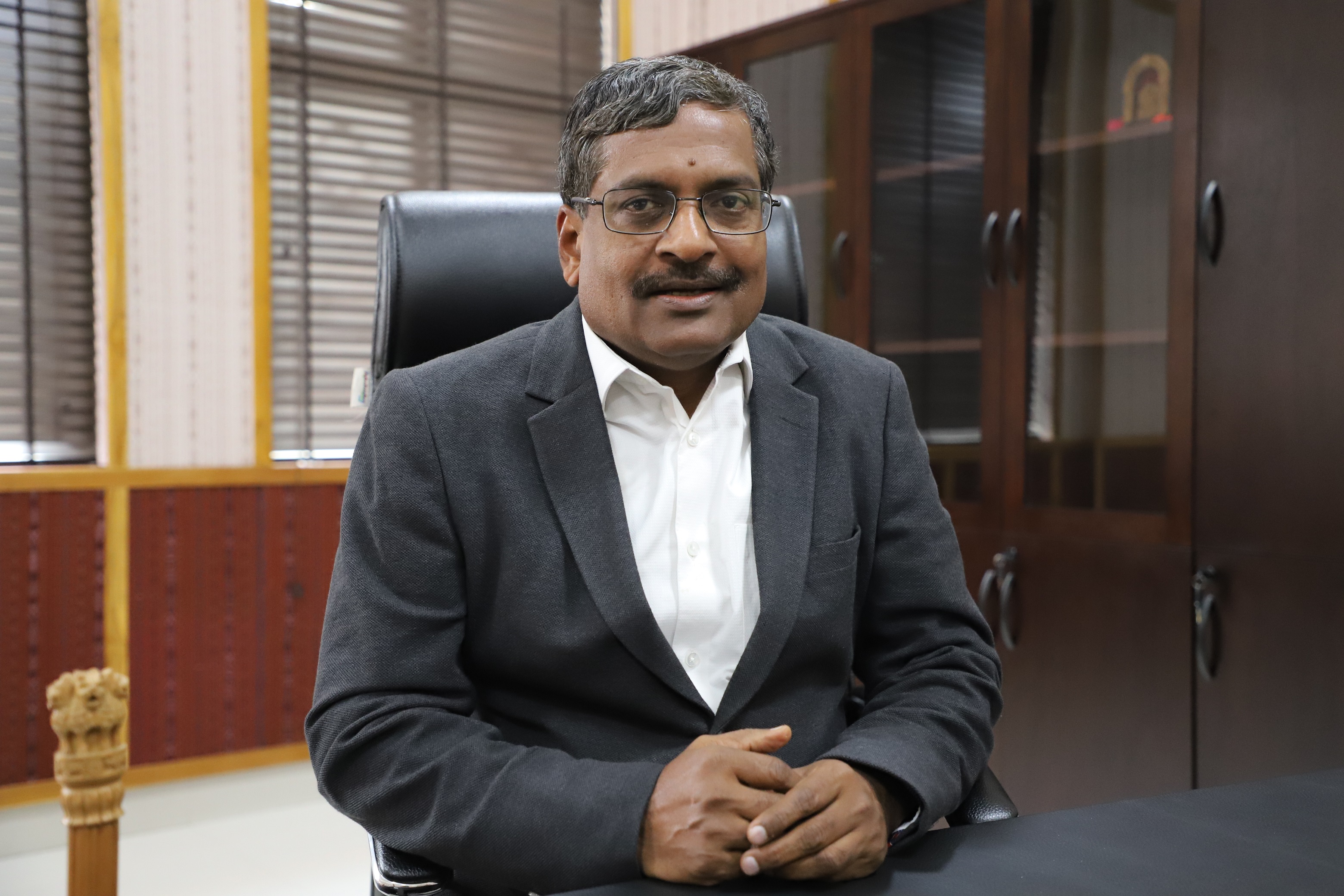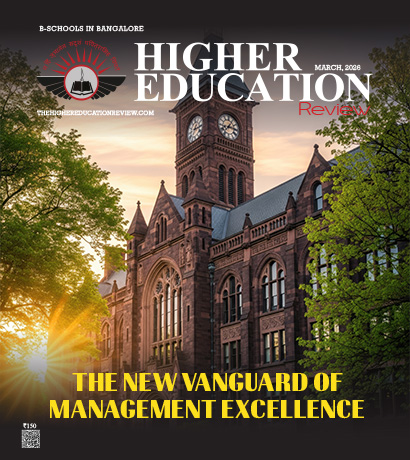Prof Mahadeo Jaiswal, Director, IIM Sambalpur: Emphasizing on Entrepreneurial Innovation and Experiential Learning
Dr. Mahadeo Jaiswal is currently Director of Indian Institute of Management (IIM), Sambalpur and also Professor of Information Systems. Prior to this he was Professor and Dean at MDI, Gurgaon. His qualifications include PGPX from MIT Sloan School of Management, USA, PhD in Computer Science from Delhi University and Sr. Fulbright Fellow from Carnegie Mellon University, USA and he has been Visiting Professor at IIM Ahmedabad and IIM Indore. His area of expertise includes Innovation Strategy for Start-ups, Digital Innovation & Platform Eco Systems, Social Entrepreneurship, e-Government, ERP and IT Strategy. In this exclusive interaction with Deepshikha Singh, Managing Editor, Higher Education Review magazine, Mahadeo Jaiswal, Director, IIM Sambalpur highlights on NEP and the changes within the higher education space.

- Tell us what attracted you towards a career in teaching and what motivated you to be an educator?
Being an educator gives me the freedom to work in the way I want. It inspires creation of new ideas, facilitates collaboration with other academics and industry, conduct research on subjects and publish it as well. For me personally, the main motivation for teaching or being an academician is that I get a chance to pass on my thoughts, knowledge which I still learn on the job and my daily research to future generations. While this level of influence has a lot of responsibilities, it does get a fair amount of respect. Somehow, it gives me immense satisfaction to see my ex-students established in their respective careers and I had been a small engineer behind that journey. The motivation to mentor is a passion in itself and I have nurtured and matured that over the years.
- What were the major hurdles that you had to face during the early days of your career and how did you mitigate those hurdles to become an eminent personality within the teaching community of the country?
The early days of career although were very enjoyable but challenging in terms of finance as when I started academicians were not handsomely paid. A lot of changes have been brought into the system by various Governments and I am thankful that teachers today across the country are recognized for their service towards building a modern nation. Another challenge that I faced was research publication and establishing myself in the industry. Patience is a virtue which I learnt way early in my career and thus as I moved ahead, the challenges diminished, and work became even more satisfying. What I believe is that improvement is constant and never ending. We must seek to improve, innovate the way we think, the way we do things pushing the boundary of limits in order to achieve greater heights.
- As a person who has vast amounts of experience and expertise working in both the higher education strata of India and the US, what are the major differences that you see in the education system of both the countries?
The academics in US is highly competitive and very professional compared to India. It isn’t as competitive in our country. Also in the US, academics is more focused on creation of knowledge whereas in India it is more towards distribution of knowledge and research is lower as compared to US. There is no dearth of talented and competent people in India, but there is a dearth of right ambience and support system for competent people, as a result, we are not able to compete in all fields with rest of the world. Frequent engagements between industry and academia are required to make education current and relevant. A lot of collaborative research should be carried out in institutes of higher learning to make students aware of the challenges they might face once they are out to battle in the corporate job market.
- According to you, what are the major changes that have to happen in the field of business education in India to help our students be at level pegging with their western counterparts?
Business education in India needs to move towards innovation in learning pedagogy andresearch. Apart from this, it needs to orient more towards application and creation of business rather than information and understanding merely. In 2020 and beyond, entrepreneurial thinking, adaptive leadership styles, and being highly resilient are the qualities that need to be honed by the B-schools in their students, especially with the changing dynamics in businesses across the globe due to the pandemic, it is equally important to hone the skills and adapt them to real life scenarios which can hold them in good stead for future. According to Oxford Economics, the anticipated skill sets of the future are: digital skills, agile thinking skills, interpersonal & communication skills, and global operating skills. The paradigm of workforce is also changing. With AI and the internet of things going to be the future of determining the right workforce it is important to build digital dexterity through proper training. Business leaders of tomorrow must have a synergy of both technical and soft skills.
- Tell us about some of the major innovations and upgradations that you have bought into improving the quality of MBA education offered at IIM Sambalpur?
We have started Flipped classroom as learning pedagogy and also bringing industry application as live projects inside the class. As opposed to traditional setting, Flipped classrooms reverse the learning environment. Most often the structured content is learnt online, off the classroom and activities that may have traditionally been considered live project assignment as homework are incorporated in the classrooms. A light project related to industries, government, issues surrounding schools, hospitals etc. are assigned to students within the classroom. The students along with the teachers then suggest solutions to the problems. Different groups suggest different solutions and express their views differently. The best ideas are then scored accordingly.
- What are the new educational policies and innovative teaching pedagogies that you are working on to bridge the industry academia gap and equip the students with the needed skills required to thrive in the modern world?
Being a new age IIM, we believe that the 3 ‘I’s of Innovation, Integration and Inclusiveness will differentiate us. In this era, everything can be self-taught digitally which diminishes the need to come to college. This leaves us with ample time to think on how best we can collaborate with students, teachers, government, and industry within the classroom to create new ideas. This is what we have been experimenting with at IIM Sambalpur with Flipped classrooms, following a model of blended pedagogy, combining the advantages of both online and traditional classroom education.
IIM Sambalpur started its academic year in August 2020 in the online mode. Learning Management Software like Moodle is being utilized for teaching and students and faculty members interact regularly through VC. Furthermore, we have smart classrooms equipped with SMART Boards, where students can login and access notes, presentations, curriculum schedules and even test their own knowledge through built-in quizzes. We are the pioneer amongst all IIMs, by conducting a part of our admission process and end term examinations through a state-of-the-art online proctoring system and we are in the process of conducting all our future examinations by implementing the same methodology.
- As the government of India recently released NEP 2020, what are your major takeaways on the various initiatives and policies put forward by the government? Also, what will be the role played by teachers in this newly revamped education system?
Overall, the NEP has brought a structural reform which was much needed. The Policy aims to inculcate critical thinking and creativity among students and encourage innovation. Allowing global institutes to set up campuses in India is also a positive move as it will increase competition because it will open up our education system and it will also help sustain high talent in the country as students don’t have to move out to pursue education. Changing the pedagogical structure from a 10+2 system to a 5+3+3+4 system is in line with international educational standards. Due to the small structure of our IIMs and IITs, despite having ample talent, they were unable to figure in top 100 institutes of the world. Allowing technical institutes to become multi-disciplinary will help IIMs and IITs to start other departments like medical etc and make their size bigger and allow them to admit more students. This will enable them to compete with the elite institutes of the world and become at par with them in the coming years. Overall, the changes have been made according to the global system of education. This will also help attract foreign students to India and help the economy as well.
NEP has laid great emphasis on learning. Our method should shift from teaching to learning where teachers go into the class not to teach but to create new knowledge and learn. Ultimately if we want to be a global player, we need to move on to a new level called Creation. We need to create new accounting and measurement methods in the country and create our own cases.
- What are the major concerns that you have with NEP 2020 and according to you what will be the major challenges that the government will face in successfully implementing the new education policy?
The biggest challenge I feel will be mitigating the digital divide. NEP focuses on the online system of education which will be utilized to increase the Gross Enrolment Ratio, especially in catering to the female students or those who do not have physical access to educational institutions. However, the digital divide is a big reality for us. Universities might struggle as they might not have adequate infrastructure to conduct classes online or in the blended mode. This is where the challenge will be and an appropriate solution has to be implemented.
- Tell us about how NEP 2020 will improve the education system of the country and how it will help the country to become a knowledge super power in the future?
At a time when leading economies like Europe, US, South Korea, Japan are ageing, India holds the advantage of having an increased working population and the youngest in 2020. It not only offers an unprecedented edge over other developed or developing nations but also has the demographic potential offering ultimate superiority which could further contribute to the GDP growth rate and realize the dream of $5 trillion economy. With such latent talent lying dormant, it is indeed a need of the hour for a much-needed structural reform in the education system of our great nation. I see a great opportunity for the Indian education system at present where we can create a huge number of learned people at a much lower cost. This can enable the entire service industry to boom. India, with its vast digital and human resource talent can capture the global market. The NEP aims to transform the system to match international standards of pedagogy. The Policy intends to inculcate critical thinking and creativity among students and encourage innovation. By promoting a beneficial learning environment, research and free communication between teachers and students, the NEP is all set the ball rolling in the right trajectory.

